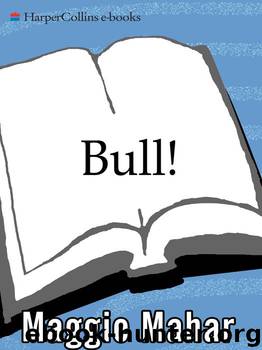Bull! by Maggie Mahar

Author:Maggie Mahar [Mahar, Maggie]
Language: eng
Format: epub
ISBN: 9780061581342
Publisher: HarperCollins e-books
Published: 2009-10-13T05:00:00+00:00
THE CHAIRMAN RECANTS
Less than seven weeks later, Greenspan tried to assuage any fears that his words might have stirred. Testifying before the Senate Budget Committee, the Fed chairman gave a speech that Edward Yardeni, chief economist at Deutsche Morgan Grenfell, summed up neatly as “the case for rational exuberance.”
“His comments indicate that he is very pleased with the performance of the economy and sees no reason to either raise or lower interest rates at this time,” noted Yardeni. “I believe that his analysis of the economy’s recent performance is especially bullish for stocks. In his formal presentation, there was no mention of ‘irrational exuberance.’ He simply observed that the stock market continued to climb at a ‘breathtaking’ rate.”28
From “irrational” to “breathtaking.” It was not just an about-face; it was a pirouette.
In March, the Fed lifted interest rates by a quarter point—a small but important move. Reportedly, Fed Governor Laurence Meyer considered this a “brilliant” stroke on the chairman’s part. “Here is Greenspan, the poster boy for the New Economy, playing the Old Economy inflation hawk card. The chairman was keeping a foot in both camps, both the New Economy/higher productivity school and the Old Economy/inflation-fighting school. It was a masterly management of the process,” Meyer concluded.29
But neither Wall Street nor Washington welcomed the tightening, and Greenspan would not lift rates again until June of 1999. In the interval, he cut interest rates three times.
In the spring of ’96, Greenspan also publicly repudiated the idea of raising margin requirements. Once again testifying before Congress, he rejected the notion as an “anachronism,” recalled Morgan Stanley’s Steve Roach—“and this was just six months after declaring that if the Fed wanted to pop the bubble ‘I guarantee, that would do it.’”
In retrospect some would claim that even if the Fed had made it more difficult to borrow in order to buy stocks, studies show that raising margin requirements would have little effect. Roach disagreed: “No one knew what effect it would have—they hadn’t touched margin requirements since ’75,” he said. Moreover, any action by the Fed would have had a psychological impact. “As a signaling mechanism, lifting margin requirements could have been very powerful,” Roach observed in 2003.30
For by now, the bull market had become a confidence game, and Greenspan had the nation’s confidence. As noted, the Fed chairman’s power was, to a large degree, psychological. In the past, “the Fed exerted control by regulating the dollars called bank reserves. Figuratively speaking, Citibank (to name one of the central bank’s charges) was a dog at the end of a leash. The Fed was the master and the leash was the monetary transmission mechanism,” noted James Grant. “Nowadays, in a freer environment, Citi may be thought of as a cat. No longer inclined to walk at heel, it can lend and borrow without undue reliance on these Fed-supplied balances.”31
Moreover, by the nineties, four-fifths of the working capital used to finance industry and commerce came, not from the banks the Fed supervised, but from the market itself.
Download
This site does not store any files on its server. We only index and link to content provided by other sites. Please contact the content providers to delete copyright contents if any and email us, we'll remove relevant links or contents immediately.
| Biographies | Company Profiles |
| Economic History |
Pale Blue Dot by Carl Sagan(5012)
The Rules Do Not Apply by Ariel Levy(4972)
Goodbye Paradise(3812)
Ogilvy on Advertising by David Ogilvy(3626)
Liar's Poker by Michael Lewis(3452)
Delivering Happiness by Tony Hsieh(3430)
Into Thin Air by Jon Krakauer(3402)
Purple Cow by Seth Godin(3205)
Rogue Trader by Leeson Nick(3047)
The Social Psychology of Inequality by Unknown(3037)
The Airbnb Story by Leigh Gallagher(2861)
4 - Harry Potter and the Goblet of Fire by J.K. Rowling(2704)
The Mind Map Book by Tony Buzan(2581)
Bossypants by Tina Fey(2534)
Claridge's: The Cookbook by Nail Martyn & Erickson Meredith(2409)
All the President's Men by Carl Bernstein & Bob Woodward(2380)
Six Billion Shoppers by Porter Erisman(2305)
Master of the Game by Sidney Sheldon(2294)
Alibaba by Duncan Clark(2084)
